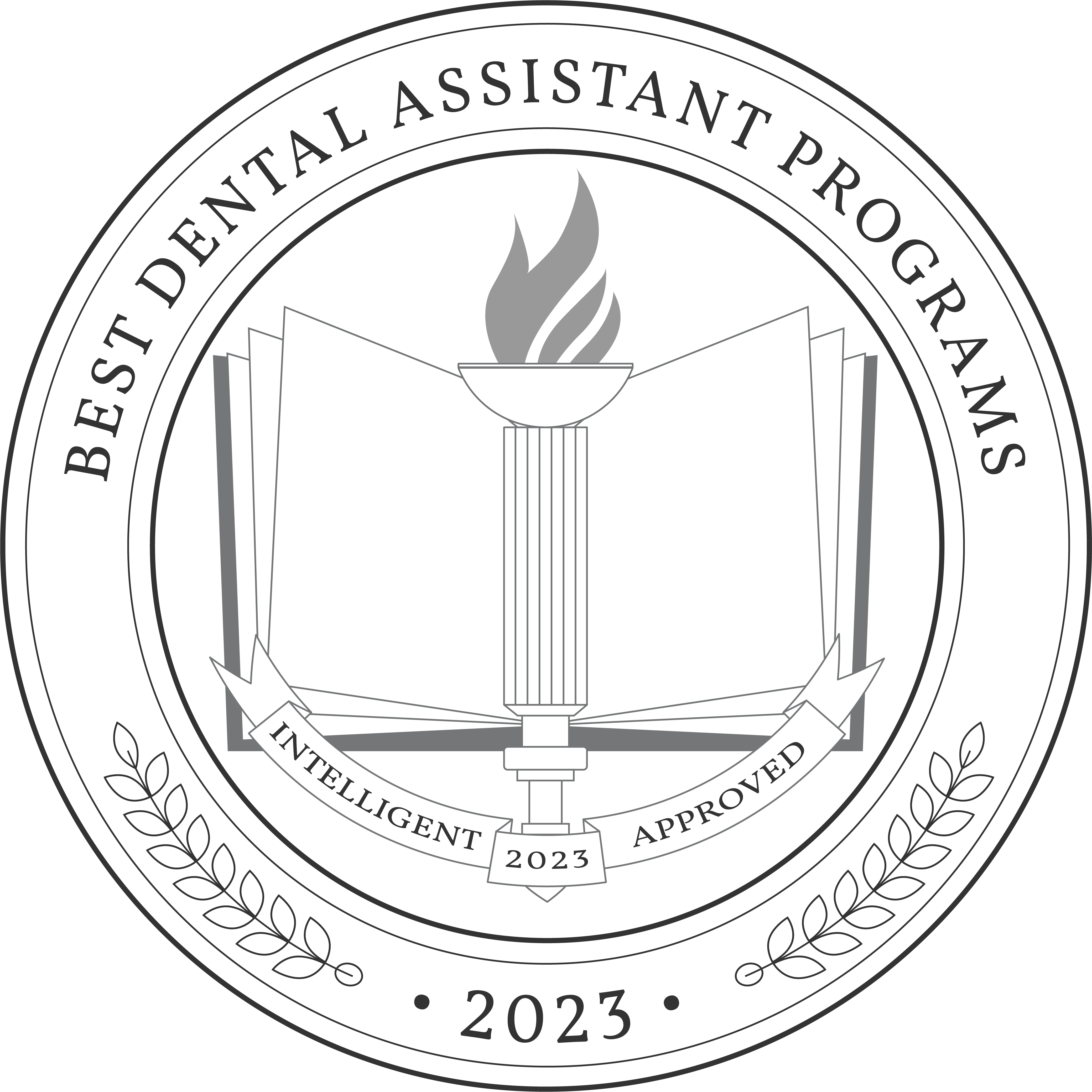Why This Matters
-
DENTAL ASSISTANT JOBS EXPECTED TO GROW 7%
The Bureau of Labor Statistics expects dental assistant jobs to grow faster than average, increasing by 7% from 2019 to 2029. This should create another 23,400 jobs in the field by the decade’s end.
-
FOCUS ON FIVE DIFFERENT DENTAL SPECIALTIES
Although dental assistants work in entry-level positions, they can still specialize. You may specialize in pediatric dentistry, cosmetic dentistry, orthodontics, prosthodontics, or endodontics.
-
INCREASE YOUR EARNING POTENTIAL TO $40,000+ ANNUALLY
Dental assistants earn a median annual salary of $40,080, and a significant number make more than $50,000 per year. The top 10% in the field bring in salaries of more than $56,390.
Our Research
We reviewed many dental assistant programs, including certificate programs, diploma programs, and associate’s degrees. Our list also includes online, traditional, and hybrid programs, although online programs frequently have an in-person component.
All of the programs listed have regional or national accreditation, and many are accredited by The Commission on Dental Accreditation (CODA). Regional and CODA accreditation are generally the two most widely respected accreditation credentials.
We evaluated each program on the basis of flexibility, faculty, course strength, cost, and reputation. Then we calculated the Intelligent Score for each program on a scale from 0 to 100. For a more extensive explanation, check out Our Ranking Methodology.
- 70 hours to write this article
- 74 universities and colleges we assessed
- 147 education programs we compared
The Top 32 Dental Assistant Degree Programs

Discover More Options
What You Should Know About This Degree
Dental assistant programs include certificates, diplomas, and associate’s degrees. Associate’s degrees usually require two years of study, which is longer than what most certificates and diplomas require. An associate’s degree might make you more attractive to potential employers, however, and associate credits can be transferred into a bachelor’s degree program if you continue your postsecondary education in the future. Choose a program that’s suitable to your current situation and your career aspirations.
Dental assistants and dental hygienists work alongside one another, but they fulfill different roles. Assistants tend to do more office work, while hygienists typically do more actual dental work. Hygienists normally perform dental cleanings, for example.
Because dental hygienists perform more actual dental work, they have higher education requirements than dental assistants. Whereas assistants only need a diploma or certificate, hygienists need at least an associate’s degree and may want a bachelor’s.
If you want to become a dental hygienist, working as a dental assistant may serve as a stepping stone on your way to becoming a hygienist. If this is your goal, consider a regionally accredited or CODA-accredited associate degree that will be recognized by other schools. This will allow you to transfer your completed credits into a dental hygienist degree program.
Most of these programs, including online programs, have an in-person component. Make sure any such component is compatible with your schedule.
What’s Next?
Consider these questions as you continue to research dental assistant programs:
- How long does it take to complete this online degree? Associate’s degrees are designed to take two years of full-time study to complete. Diploma and certificate programs typically take a shorter amount of time.
- What licensing or certifications are required? Dental assistant certification requirements are determined at the state level, and they vary by state. Check with your state before enrolling in a program to make sure that the program will meet any certification requirements. In addition to state certifications, dental assistants can also pursue national certification through the Dental Assisting National Board.
When you have a short list of programs, find out what the application process is for each one. Contact programs or check their websites to learn what the required application materials are and when the application deadline is.
Also give thought to how you’ll pay for a program. Talk with programs about scholarship and financial aid opportunities. If you’re employed, you might also have access to tuition reimbursement through your employer.